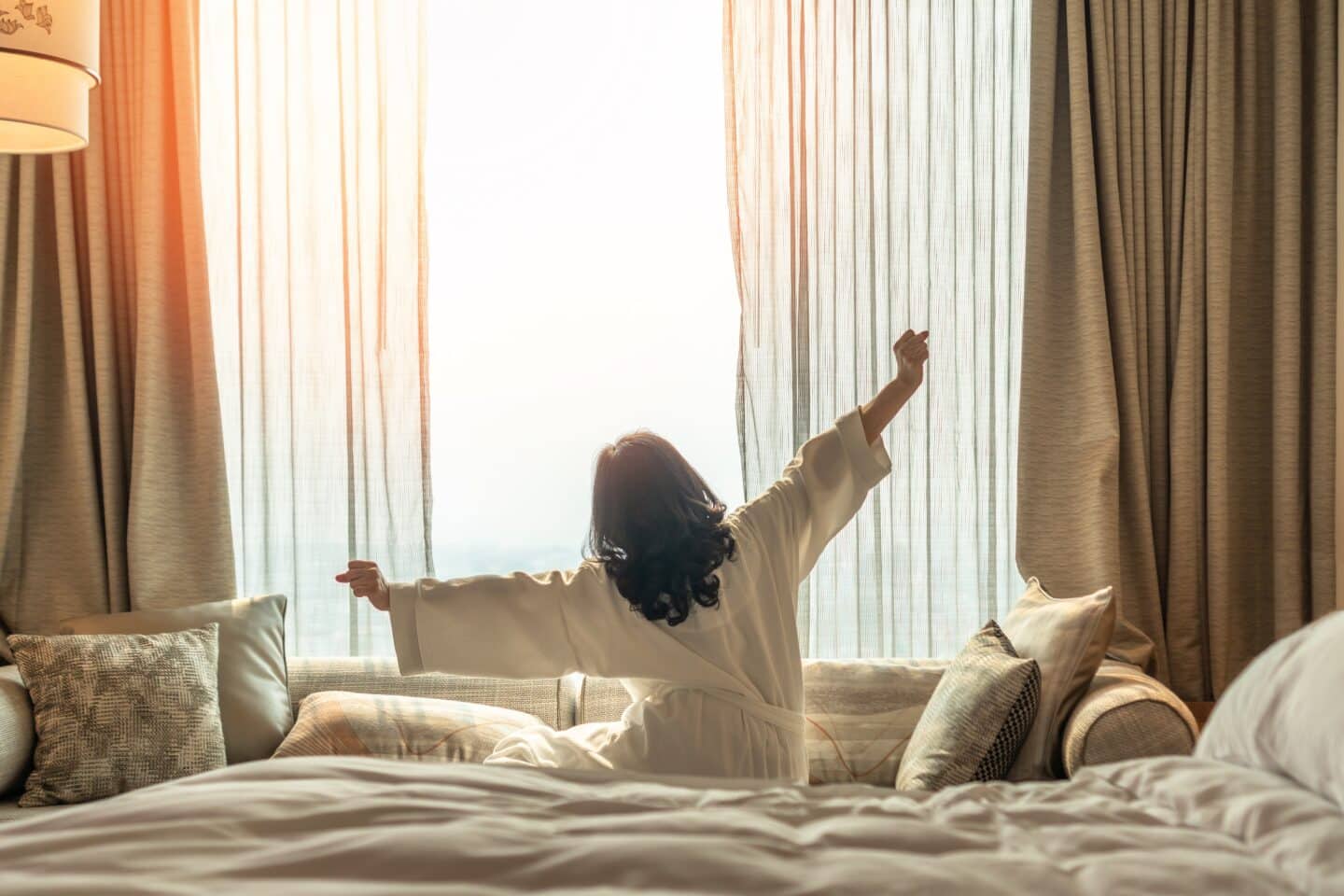By Dan Larrazabal, LCSW Therapist with MedPsych Behavioral Health
We often hear people say, “I need.” I need…You fill in the blank. Most of the time I hear it, or even say it, I am exclaiming that I need something that is not actually a necessity, whether it be a massage, sushi, or a new phone. Does that resonate at all with anyone?
On the flip side, it is rare to hear someone say, “I need to exercise” or “I need to sleep” as a daily statement. Despite this being the case, sleep and exercise are two things that we absolutely need if we want a good, healthy mind and body. These are not negotiables/luxuries but rather necessities. I would even say that they are all the more imperative in this current day with a sedentary lifestyle being the norm-of getting up, driving to work, sitting at a desk for 8 hours, driving home, sitting down for dinner, watching our evening show, doom scrolling, and going to bed.
The demands of today’s fast-paced world necessitate that we have these two things, sleep and exercise, as part of our daily regimen, if we desire to feel good and perform to the best of our ability. Let’s dive into the benefits of each and why you should be adding this to your routine.
Exercise: A Natural Antidepressant
We often make comments of, “Oh wow, they look great!” but that’s only scratching the surface. Sure, looking healthy and fit does wonders for our personal esteem, but I would argue the more attractive part is how we feel. Building strength and aiding in weight management is great, but its positive effects on mental health are just as significant. Here’s how exercise can improve mental well-being:
- Boosting Mood and Energy: Exercise triggers the release of endorphins, often referred to in conversation as one of the four “feel-good” hormones. Endorphins alleviate stress, improve mood, and create a sense of well-being, after all, you put good effort in! When done regularly exercising increases energy levels, which combats fatigue and lethargy, common symptoms of depression.
- Reducing Anxiety and Stress: Exercising lowers cortisol, a hormone that helps us respond to stress, among other stress hormones. Serotonin and dopamine are released, both of which are linked to feeling happy and relaxed. The great news is that you don’t even need to do vigorous exercise to get these benefits- light exercise, such as walking or yoga, can also have a calming effect on the mind and reduce anxiety levels.
- Improved Cognitive Function: Exercising regularly enhances cognitive performance due to increased blood flow to the brain. Memory, attention, and problem-solving skills are increased, and it fights off cognitive decline. A bonus is your ability to learn and digest information. Exercising, especially aerobic exercise, helps us learn and store knowledge.
- A Social Outlet: Participating in sports or workout classes does wonders for us, by engaging in social interaction. Even the most introverted introvert needs social interaction in some capacity.
Sleep: The Foundation of Mental Resilience
Sleep is the single most important thing we can do for our overall health. There is not only an undeniable connection between sleep and physical health, but mental health as well. When sleep is poor, our personal health takes a massive hit, the least of the problems being mood swings and irritability, and potentially more severe mental health issues over time. Here is why sleep is crucial:
- Emotional Regulation: Sleep affects our ability to regulate emotions and cope with stress. Poor sleep disrupts brain function in areas related to emotional regulation, making it harder to handle challenges and leading to more negative reactions. This is a major reason why lack of sleep is often linked to conditions such as depression and anxiety.
- Stress Recovery: Sleep allows the body and mind to recover from daily stresses. During sleep, the brain processes emotions and memories, helping us work through challenges and mentally prepare for the next day. Sleep deprivation, on the other hand, leads to heightened stress and makes us less resilient to the day’s worries.
- Cognitive Health: Poor sleep impedes cognitive functions, like attention, decision-making, and problem-solving abilities. Over time, chronic sleep deprivation can lead to more severe cognitive problems, including memory loss and difficulty concentrating.
- Preventing Burnout: Consistently good sleep can prevent mental burnout, particularly in stressful work environments or demanding life situations. When we sleep well, our capacity to deal with challenges increases, allowing us to approach problems with clarity and mindfulness.
The Synergy Between Exercise and Sleep
Exercise and sleep are not separate entities when it comes to mental health—they work together in a synergistic relationship, or in other words, they work off of each other. Regular physical activity has been shown to improve the quality of sleep, helping individuals fall asleep faster, enjoy deeper sleep, and wake up feeling refreshed. This is especially felt with aerobic and anaerobic exercise, but exercising in general will improve sleep quality. In turn, quality sleep enhances performance during exercise, providing more energy and better recovery.
Exercise and sleep are for all, regardless of whether you struggle with severe mental health or not, whether young or old. Doing these regularly can be a total game-changer for you, trust me I would know, as someone who struggled with insomnia for years!
Practical Steps for Incorporating Exercise and Sleep
- Start Small with Exercise: If you’re new to exercising, start with something manageable. A 30-minute walk, a short yoga session, or even a few minutes of stretching can make a difference. Over time, increase the intensity or duration.
- Create a Sleep Routine: Establish a regular sleep schedule by going to bed and waking up at the same time every day, even on weekends. Create a calming bedtime routine by avoiding screens at least an hour before bed and wind down with a book, journaling, or meditation. Recommended sleep time varies by age:
- 3-5 years old: 10-13 hours
- 6-13 years old: 9-11 hours
- 14-17 years old: 8-10 hours
- 18-64 years old: 7-9 hours
- 65+ years old: 7-8 hours
- Stay Consistent: Consistency is key for both exercise and sleep. Aim to make both a regular part of your life rather than something you do every once in a while. The more consistent you are, the more you will experience the positive benefits of both.
Dan Larrazabal is a therapist with MedPsych Behavioral Health. Dan works with teens, young adults and adults in Bergen County and Northern New Jersey helping them work through mental health issues such as anxiety, depression, self-esteem, trauma, grief and insomnia. Dan is an expert in sleep therapy and utilizes his training in CBT-I from Harvard University to help adults struggling with sleep regain control in just a matter of weeks. If you would like to have a free consultation with Dan, contact MedPsych at [email protected].




